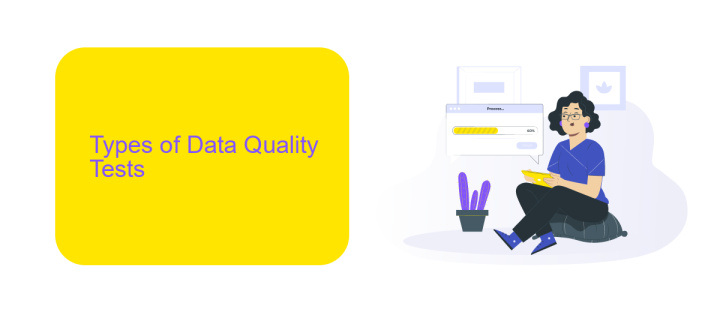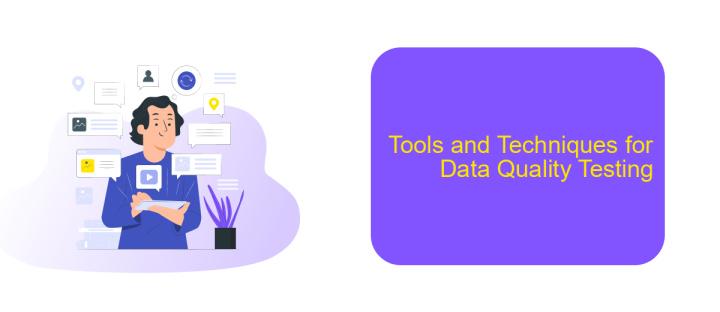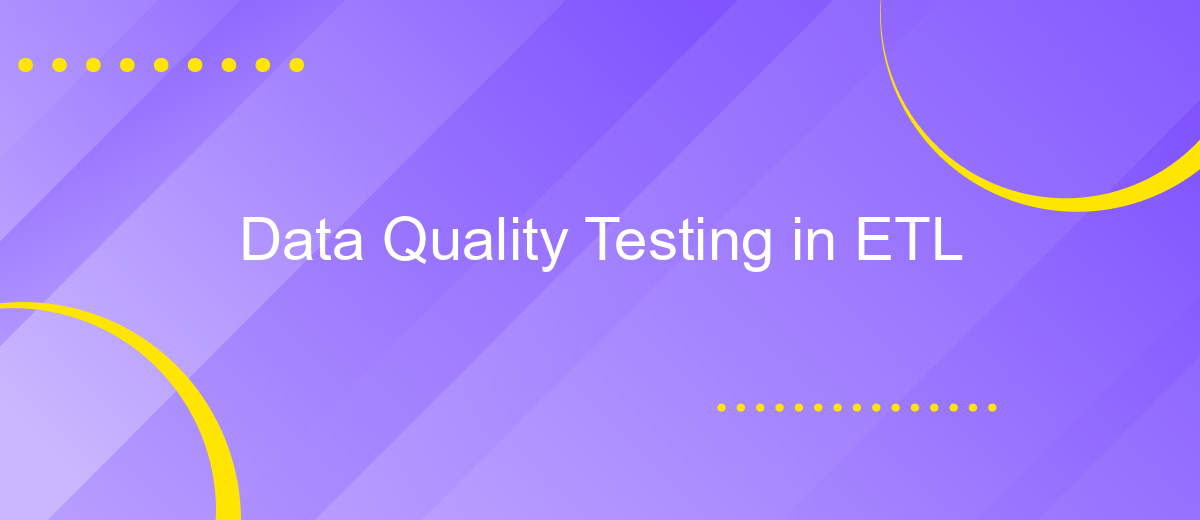Data Quality Testing in ETL
Data Quality Testing in ETL (Extract, Transform, Load) processes is crucial for ensuring the accuracy, consistency, and reliability of data as it moves from source to destination. This essential step helps identify and rectify errors, discrepancies, and data integrity issues, thereby enabling organizations to make informed decisions based on high-quality data. In this article, we explore the methodologies, tools, and best practices for effective data quality testing in ETL.
Introduction to Data Quality Testing in ETL
Data Quality Testing in ETL (Extract, Transform, Load) is essential for ensuring the accuracy and reliability of data as it moves through the ETL pipeline. Poor data quality can lead to incorrect analysis, faulty business decisions, and operational inefficiencies. Therefore, rigorous testing is crucial to maintain high standards of data integrity.
- Validation of data formats and types
- Consistency checks across data sources
- Verification of data transformations and mappings
- Ensuring data completeness and accuracy
- Monitoring data integration processes
Effective data quality testing requires automated tools and services to streamline the process. For instance, ApiX-Drive can facilitate the integration of various data sources, ensuring seamless data flow and reducing the risk of errors. By leveraging such tools, organizations can maintain robust ETL processes and achieve higher data quality standards.
Types of Data Quality Tests

Data quality tests in ETL processes are essential for ensuring the accuracy, completeness, and reliability of data. One common type of test is the validity test, which checks whether data values fall within acceptable ranges or conform to specified formats. This includes verifying that dates are in the correct format, numbers are within expected ranges, and text fields do not contain invalid characters. Additionally, completeness tests ensure that all required data is present and that there are no missing values in critical fields.
Another crucial type of data quality test is the consistency test, which ensures that data is uniform across different datasets and systems. This involves checking for duplicate records, ensuring referential integrity, and validating that related data points match across tables. Tools like ApiX-Drive can help automate these tests by integrating various data sources and ensuring seamless data flow, thus maintaining high data quality standards. Lastly, accuracy tests verify that the data correctly represents real-world scenarios, often by cross-referencing with trusted external data sources.
Challenges and Best Practices in Data Quality Testing

Ensuring data quality in ETL processes presents several challenges that can impact the accuracy and reliability of data. Addressing these challenges requires a strategic approach and adherence to best practices.
- Data Profiling: Conduct thorough data profiling to understand the data landscape and identify potential issues before they affect the ETL process.
- Automated Testing: Implement automated testing tools to continuously monitor data quality, reducing the risk of human error and ensuring consistency.
- Data Lineage: Maintain clear data lineage to trace data flow and transformations, which helps in identifying and resolving issues quickly.
- Integration Tools: Utilize integration tools like ApiX-Drive to streamline data flows and ensure seamless data integration across multiple sources.
- Validation Rules: Define and enforce validation rules to ensure data meets the required standards before it is loaded into the target system.
By following these best practices, organizations can effectively tackle the challenges of data quality testing in ETL processes. Employing robust tools and methodologies not only enhances data reliability but also supports better decision-making and operational efficiency.
Tools and Techniques for Data Quality Testing

Data quality testing in ETL processes is crucial to ensure the accuracy, consistency, and reliability of data. Various tools and techniques can be employed to achieve high data quality standards. These tools help in identifying, diagnosing, and rectifying data issues before they impact business decisions.
One effective approach is to use automated testing tools that provide comprehensive data validation and cleansing features. These tools can handle large datasets and complex transformations, ensuring that the data remains consistent throughout the ETL process.
- Data Profiling Tools: These tools analyze the data to understand its structure, content, and quality.
- Data Cleansing Tools: They help in identifying and correcting errors in the data.
- Data Integration Tools: Services like ApiX-Drive facilitate seamless integration of various data sources, ensuring consistent data flow.
- ETL Testing Tools: These tools automate the validation of data transformations and data loading processes.
Implementing these tools and techniques can significantly enhance the quality of data in ETL processes. By adopting automated solutions and leveraging data integration services like ApiX-Drive, organizations can ensure that their data remains accurate and reliable, supporting better decision-making.
Conclusion and Future Directions
In conclusion, Data Quality Testing in ETL processes is crucial for ensuring that the data being transferred is accurate, consistent, and reliable. By implementing rigorous testing protocols, organizations can detect and rectify issues early, thereby maintaining the integrity of their data warehousing solutions. It is essential to integrate automated testing tools and continuous monitoring systems to streamline the ETL process and minimize human error.
Looking ahead, the future of Data Quality Testing in ETL will likely see advancements in machine learning and artificial intelligence to predict and prevent data quality issues. Additionally, services like ApiX-Drive can play a pivotal role in simplifying the integration of various data sources, thereby enhancing the overall efficiency and reliability of ETL processes. As data ecosystems become increasingly complex, the importance of robust data quality testing will only continue to grow, making it a critical area for ongoing research and development.
FAQ
What is Data Quality Testing in ETL?
Why is Data Quality Testing important in ETL processes?
What are the common challenges in Data Quality Testing during ETL?
How can automation help in Data Quality Testing for ETL?
What are some best practices for Data Quality Testing in ETL?
Strive to take your business to the next level, achieve your goals faster and more efficiently? Apix-Drive is your reliable assistant for these tasks. An online service and application connector will help you automate key business processes and get rid of the routine. You and your employees will free up time for important core tasks. Try Apix-Drive features for free to see the effectiveness of the online connector for yourself.

